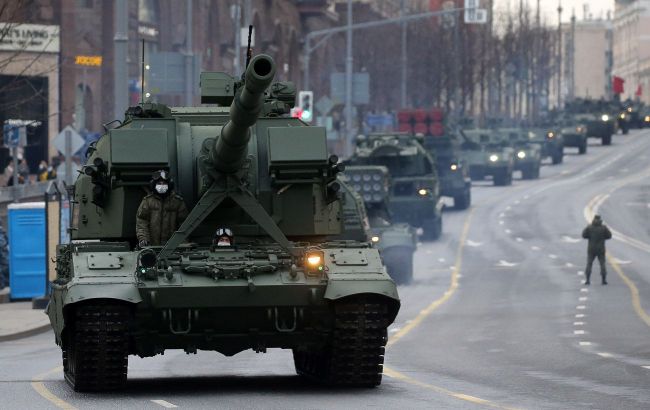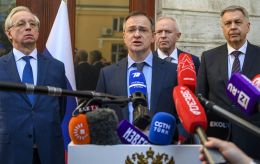Russia's arms exports crash to record lows as market share shrinks and buyers pull back
 Photo: Russia records a collapse in arms exports (Getty Images)
Photo: Russia records a collapse in arms exports (Getty Images)
Russia's defense exports continue to collapse amid its full-scale invasion of Ukraine, reports the Foreign Intelligence Service of Ukraine.
Intelligence data show Russia earned about $14 billion a year from arms exports before 2022. Revenues crashed in 2024. Figures from the Jamestown Foundation confirm the decline: $12.5 billion in 2021, $8 billion in 2022, $3 billion in 2023, and only $1 billion in 2024.
According to the Stockholm International Peace Research Institute (SIPRI), Russia's share of the global arms market fell from 21% to 7.8% in 2024. Its export geography also narrowed. Russia supplied 47 countries between 2018 and 2022. That number fell to 33 in 2024, mainly in Asia and Oceania. India, China, and Kazakhstan are also reducing purchases.
Russian officials cite a contract portfolio above $60 billion and claim the industry will see a "future recovery." Many of those contracts remain unverified. They depend on clients with limited solvency. Without Russian credit financing, these deals function more as political declarations than real exports.
At the Dubai Air Show 2025, Rosoboronexport, Russia's state-owned arms exporter, showcased 850 items. Most of the supposed new models were mock-ups. The presentation highlighted Russia's widening technological gap and a persistent shortage of combat-ready systems.
Russia's defense industry is losing market share and falling further behind in capability. It is becoming increasingly reliant on buyers in Africa and the Middle East. The downward trend in exports is expected to intensify.
Russia's economy loses stability
Russia's economy is losing resilience as the war against Ukraine drags on and sanctions remain in place. Key sectors are contracting, and the banking system is preparing for potential state support to avert a collapse.
On September 4, Sberbank Chief Executive Herman Gref acknowledged that economic growth in Russia had effectively stalled in the second quarter of 2025.
The International Monetary Fund earlier projected that after a short-term "war boom," the Russian economy would return to stagnation and continue losing ground to advanced and emerging economies.
In its July forecast, the IMF said Russia's GDP growth would slow to 0.9% in 2025 and to 1.0% in 2026. The figure reached 4.1% in 2024.
Despite the Kremlin's attempts to project "economic stability," analysts estimate Russia is directing roughly half of its federal budget to the war against Ukraine. The allocation is widening the country's internal economic strain.

